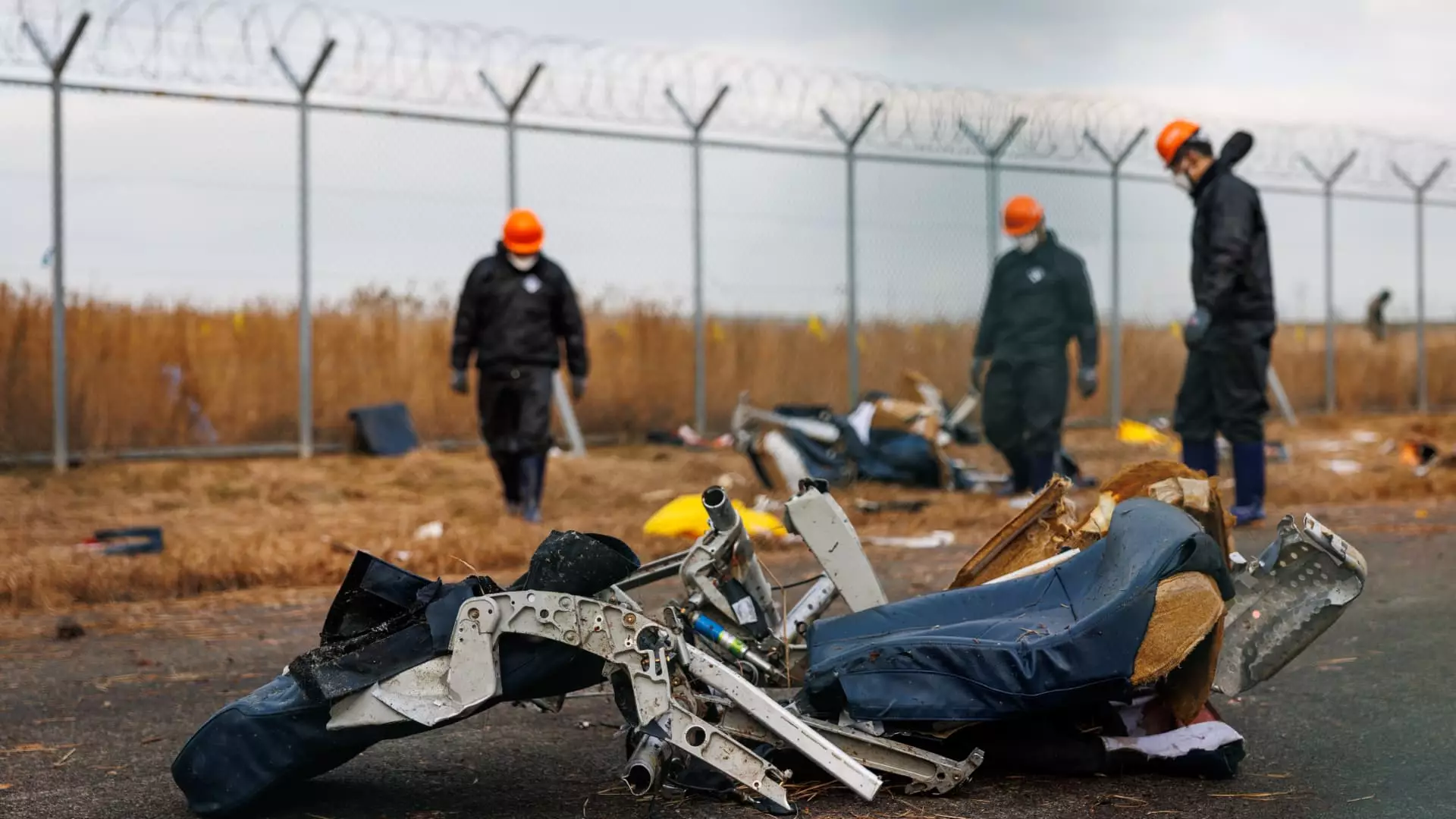In a dramatic turn of events, Boeing witnessed a drop of nearly 5% in its stock value during premarket trading on Monday morning. This decline followed South Korea’s decision to mandate inspections of all B737-800 aircraft, the very model implicated in a catastrophic aviation disaster over the weekend. The Jeju Air incident, which resulted in the tragic deaths of 179 of the 181 passengers onboard, has sparked significant concerns regarding the safety of this popular aircraft model that has been in service for decades. This turmoil arrives in a time of already heightened sensitivity regarding airline safety, reigniting debates about the accountability of aircraft manufacturers and their responsiveness to emerging safety concerns.
The unfortunate event occurred when a B737-800, while attempting to land at Muan International Airport, did so without deploying its landing gear. This critical error led the aircraft to skid off the runway, collide with a concrete wall, and subsequently catch fire, resulting in widespread tragedy. In a preliminary investigation by South Korea’s Ministry of Land, Infrastructure, and Transport (MOLIT), it was disclosed that the aircraft’s pilot had communicated a “bird strike” shortly after a related warning was issued. Notably, there was also a declared “Mayday” alert by the pilot, indicating the urgency of the situation. The retrieval and analysis of two black boxes from the wreckage are now underway, with investigators focusing on deciphering the crash’s underlying causes.
In response to the crash, the South Korean government acted swiftly by initiating a comprehensive review of the aviation safety protocols governing the operation of all B737-800 models in the country. MOLIT announced that each airline would undergo extensive evaluations to ensure compliance with maintenance and inspection standards. This proactive measure aims to prevent any future occurrences and to reassure the public regarding aviation safety. Bureaucrats also emphasized their intent to enhance regulations surrounding bird activity, which has been highlighted as a critical area for improvement, particularly for newer airports currently under development.
Jeju Air, the largest operator of the B737-800 in South Korea, became one of the most affected players in the market following the tragedy. Reports indicated that another aircraft of the same model returned shortly after takeoff due to landing gear issues, further compounding concerns about the reliability of the fleet. The fallout for Jeju Air saw its shares drop to an unprecedented low, emphasizing the volatility that can accompany crisis situations in the aviation industry. In a bid to reassure stakeholders, the airline’s representatives were quick to dismiss claims of mechanical failures affecting their operational safety, asserting that there is no compromise when it comes to aircraft maintenance standards.
The B737-800 model has been an integral part of commercial aviation for nearly thirty years. However, this tragic incident casts a shadow over the reputation of not only Jeju Air but the Boeing brand as a whole. The continued scrutiny from regulatory bodies and the media raises questions about the potential need for a reevaluation of the B737-800’s operational protocols and safety guidelines. As such incidences mount, stakeholders will undoubtedly call for stricter adherence to safety regulations and enhanced scrutiny of manufacturing practices to safeguard passengers in the future.
This incident serves as a sobering reminder of the inherent risks in air travel and the critical importance of continuous oversight in aircraft safety regulations. As investigations proceed and further information becomes available, a swift governmental and corporate response is essential in addressing the concerns that arise. Boeing and its operators must collaboratively engage in innovative safety practices to restore confidence in both the aircraft and the broader aviation market. The focus will undoubtedly remain on how this tragedy can not only inform future strategies but enhance safety standards to avert similar disasters in the future.


Leave a Reply